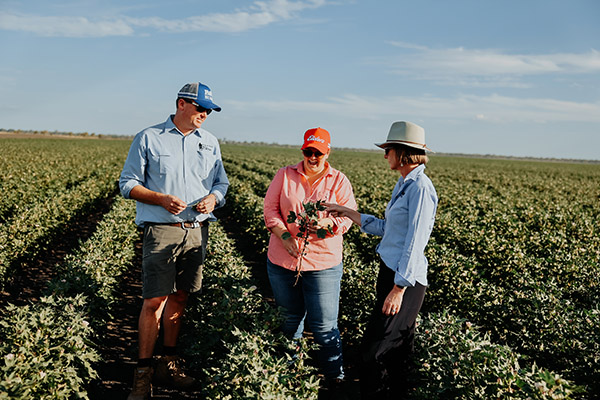So, let us get this straight; you’ve been looking for potential career pathways but are yet to find something that truly sparks your interest? Trust us, the feeling is totally normal. In fact, most of us have been in your exact position, and what’s more, we know just how to help.
Sometimes, feeling confused about your future career is just caused by not knowing that your dream industry actually exists. That’s why we want to highlight the coolest industry you’ve never heard of: Agronomy!
Trust us when we say that learning about careers in Agronomy will leave you feeling inspired and ready to launch your own career. So, with that in mind, let’s get started!
Introducing Elders
To help us accurately explain the nature of Agronomy, we’ve enlisted the help of our friends at Elders, a true staple in the Australian Agriculture industry!
Elders have been a leading Agribusiness for Australian Agriculture for over 180 years now, so it comes as no surprise that they’re a top employer or choice for young Aussies seeking Agricultural and Horticultural careers.
With a strong focus on maintaining their employees physical, financial and mental well-being, Elders wants to make sure every worker thrives and feels proud to put on their uniform every morning. To learn more about all the career perks that Elders offer, you can find them on their employer profile!
First Thing’s First: What Is Agronomy?
In short, Agronomy is a super special, holistic approach to Agriculture. Those working in this field are specialists in crop and soil science, and ecology, too! Some of the key things that they analyse are:
- The properties of the soil
- How crops grow and develop
- The ways that climate and environmental factors affect crops
- How the soil interacts with the growing crop
- What nutrients the crops need
- How to grow crops effectively and sustainably

Why Agronomy is Important
There are tonnes of reasons why Agronomy is so important. After all, we all rely on crops to feed Australians all across the country and keep our bellies full of nutritious, healthy food. What’s more, those working in this industry also play a vital role in farmers’ businesses to ensure productivity is maximised. Basically, what we’re trying to say is that Agronomists play a vital role in Australian Agriculture, so it’s very fair to say that they’re super important!
Agronomy Careers
Agronomy careers are perfect for people who enjoy being outside, working with a variety of different people and would like a job where there’s something different happening every single day! What’s more, there are a few different areas of specialisation including Horticulture, Broadacre, Precision Agriculture and AgTech, so there’s something for everyone!
Why Study Agronomy
Many Agronomists will study a science degree specialising in Agronomy, Agriculture or soil science before starting out in their careers. This kind of educational background doesn’t just look great to future employers, it also provides you with a great base for your future career. So, if you want to start out on the right foot, a relevant degree is a great option!
However, before you even start studying a university degree, there are a bunch of helpful high school subjects that can put you on the right track. If you’re a future Agronomist, you might want to consider studying maths, biology, chemistry, geography and general science. Obviously, Agriculture would be a fantastic option too, but it isn’t a super common offering at high school!
Extra Agronomy Perks
Agronomy is a super rewarding and admirable career, but there are also some pretty incredible perks for Agronomy pros, too! Check out what you can look forward to if you decide to pursue a career in this field:
- Agronomist roles are competitive and can pay super well
- There are tonnes of opportunities to grow knowledge and experience
- Career progression is always supported
What Agronomists Actually Do
- Look after everything to do with crops (from the soil they grow in to the nutrients they require to be productive)
- Advise farmers on the health of the plants in their crops
- Advise farmers on what nutrition their crop requires
- Give recommendations for controlling weeds
- Hold relationships with farmers and communities
- You don’t have to study a graduate program to succeed (but many organisations do offer graduate positions)

